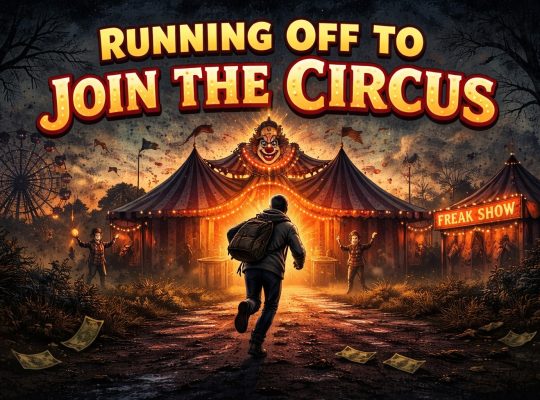How Convenience Destroyed the Food We Eat
The food we eat today is drastically different from what our grandparents or even parents consumed. What was once fresh, homemade, and nutrient-rich has been replaced by ultra-processed, pre-packaged products designed for convenience. This shift didn’t happen by accident—it was driven by advancements in technology, the rise of the oil and plastics industries, and our collective desire for speed and simplicity. But convenience has a cost, and it’s one we’re paying with our health and well-being.
A History of Food Transformation
For most of human history, food preparation was a slow, intentional process. Bread was baked at home, vegetables were picked fresh from the garden, and meat came from animals raised locally. Preservation methods like canning or smoking required effort and planning.
The mid-20th century saw a shift with the rise of industrial food production. Metal cans and glass jars gave way to plastic packaging, which revolutionized how food was stored and transported. Suddenly, meals could be mass-produced, shipped globally, and stored for months. This marked the birth of convenience foods—but also the decline of fresh, nutrient-dense diets.
Plastic and the Push for Processed
Plastic was a game changer. Lightweight, durable, and cheap, it became the go-to material for food packaging. But its adoption wasn’t just about convenience; it was also a boon for the oil industry. Plastic, after all, is a byproduct of petroleum.
The rise of plastic packaging coincided with the explosion of processed and ultra-processed foods. From single-serve snacks to ready-to-eat meals, plastic made it possible to deliver cheap, long-lasting products to every corner of the world. The trade-off? These foods are often stripped of nutrients, loaded with preservatives, and engineered for taste rather than health.
Ultra-Processed Foods: Not Even Real Food
Processed foods are everywhere, from frozen dinners to breakfast cereals. But ultra-processed foods take it a step further. These are products made almost entirely from substances derived from food, such as oils, starches, and sugars, combined with additives like flavorings, colorings, and emulsifiers. Think of soda, candy, or instant noodles—they may be edible, but they barely qualify as food.
The result? A diet that is calorie-dense but nutrient-poor. These foods are designed to be addictive, triggering our brain’s reward system without providing the sustenance our bodies need. Over time, this leads to a host of health problems, from obesity to chronic diseases like diabetes and heart disease.
The Biblical Warning: Lust, Envy, and Pride
The Bible speaks to the dangers of worldly desires, warning against lust, envy, and pride. These vices are evident in our food culture:
- Lust for instant gratification drives us to choose fast, convenient meals over wholesome, home-cooked options.
- Envy of others’ lifestyles leads us to consume trendy health products that promise miracles but deliver little.
- Pride blinds us to the reality of what we’re eating, convincing us that we’re making good choices when we’re not.
This isn’t just about food; it’s about the broader societal mindset that values speed and convenience over quality and intention.
Slowing Down to Nourish Ourselves
Reclaiming our health starts with slowing down. It’s about choosing fresh, whole foods and taking the time to prepare them ourselves. It’s about rejecting the lie that we’re too busy to eat well and recognizing that our health—and the health of our families—is worth the effort.
We also need to be aware of the larger forces at play. The overabundance of plastic isn’t just an environmental issue; it’s a symptom of a system that prioritizes profit over well-being. By choosing less packaged and more natural foods, we can take a stand against this unsustainable cycle.
Everything is Connected
The food we eat doesn’t exist in isolation. It’s tied to the oil industry, to marketing strategies that exploit our desires, and to cultural values that prioritize convenience over health. When we begin to see these connections, we can make better choices—not just for ourselves, but for society as a whole.
Tired of online money making programs that OVER-promise and UNDER-deliver? 🤬
How about this for an offer? 😜
Introducing the 4-Week MLM Boot Camp – Your comprehensive guide to:
- 10-Second Prospecting
- Promoting to the Right Audience
- Team Building Strategies for Growth
- Bulletproof Mindset Development
With almost 40 years in the industry, I’ve seen it all and know what works. 🚀
No tire kickers 😒
I’m looking for those who are:
- Dedicated to their success
- Committed to learning the skills
- Hungry to make a change
- Desperate for a better way
Limited spots available. 👇
This is about as hard as opportunity can knock. The reality is that knocking on opportunity’s door is largely your responsibility.
If there was a business designed like a McDonald’s franchise, without the high price-tag, that would also reward you a passive income, could you see yourself as an entrepreneur? The secret is in the system (not individual personalities).
Interested in making (not spending) some extra money this year?
Want to learn and earn with me on your team?
Follow the link now and watch my free video to learn how:
https://turnkeytruth.com
Copyright © 2024 MJ Enterprises
All rights reserved. The content contained herein is the sole intellectual property of MJ Enterprises.






